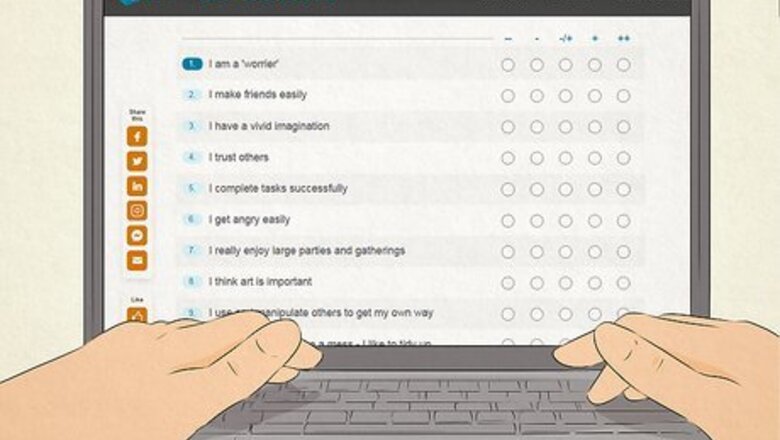
views
Decoding Your Personality and Core Values
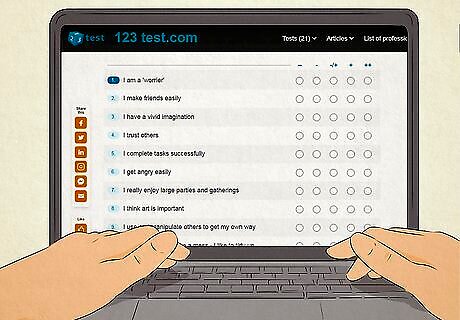
Try online personality tests. While not all personality tests are created equal, some personality tests can tell you more about who you are. For instance, the Myers-Briggs is a common test that will divide you among two options in four categories. You can also try the Big Five personality test. Use your results. Once you get your results, it will help you understand more about how you make decisions and who you are as person. It will also help you understand how you interact with other people and why you may respond in certain ways to specific situations. For instance, if you're an introvert, knowing that will help you understand why you may feel drained after parties and how you can take steps to manage your energy

Consider your biggest accomplishments. Write down the three things you consider your biggest accomplishments. What do these times have in common? In turn, consider what believe to be your biggest failures. What do those have in common?
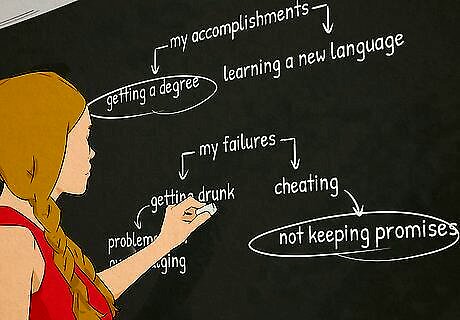
Identify what you've learned. That is, given your accomplishments and failures, consider how you acted to get there or how you would act differently now. If one of your biggest accomplishments was getting a degree, that means you consider hard work and dedication important. If one of your biggest failures was getting drunk and cheating on a girlfriend, that means you believe you have had problems with overindulging and not keeping promises and want to do those things differently.
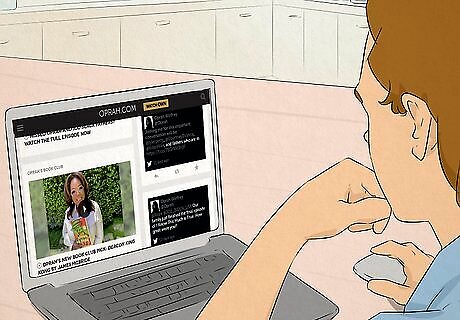
Look at people you admire. Consider the people you admire most. What do you admire about them? What qualities do they have that you wish you did? What values do they have? Those values are likely ones you wish you had, too.
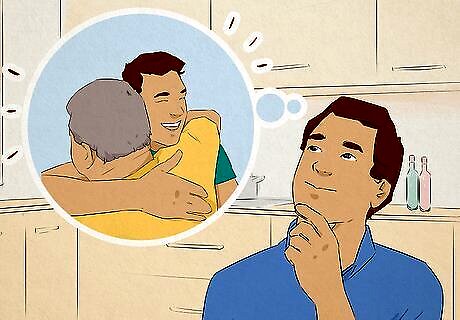
Ask yourself what's most important to you. To figure out your values, you need to consider what's most important in your life. Maybe it's your family, or maybe it's your friendships. One way to figure out what you value is to ask yourself some questions. For instance, what would you carry out of your house if it were on fire (besides your family and pets)? What would you do to change the world, if you could? What makes you passionate? The recurring themes that you find help make up your values.
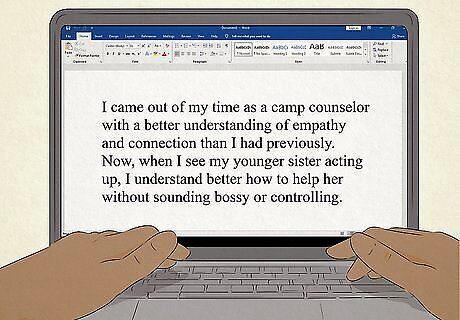
Incorporate what you've learned into value statements. For instance, you may have realized that hard work is important to you. That means it's one of your values. You have also noticed that moderation and fidelity are also important to you and part of your values.
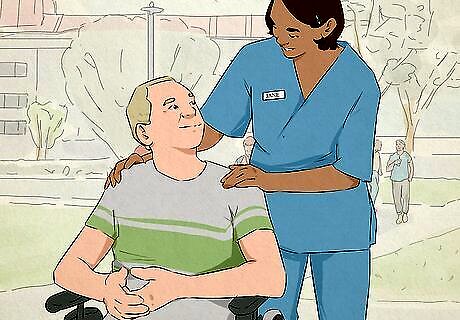
Use your values to guide your decisions. It's easy to have values in a vacuum. However, what defines you as a person is how you put those values in action. People are said to have integrity when they follow through on their values, so if you want to be a person of integrity, you must follow through on what you believe.
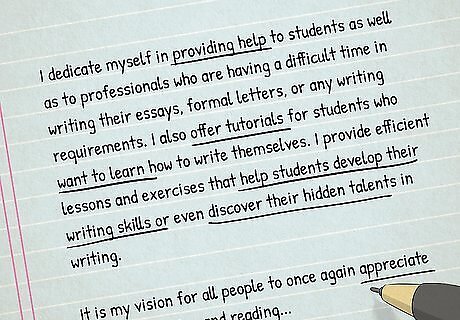
Let your values define you. Who you are personality-wise and what values you have define your actions. That is, say you value your family over anyone else. That means that you will chose your family over, say, your job or other obligations. However, if you value your work, you may choose not to have a family at all, which is also a valid choice. What you do becomes who you are. Once you realize how your values have defined you as a person, you can put that into words. For instance, if you value your family above all else, maybe you consider yourself a "family person," while if you value you work, you might say "I'm passionate about my work."
Discovering Your Passions

Think about what you loved as a kid. For instance, if you loved to color, maybe you have a latent passion for design. If you were into building toys, such as building bricks or building logs, maybe your passion is more along the lines of architecture or construction. Don't just think about what you loved. You should also consider why you loved it. For instance, you may figure out that you loved building blocks because you loved the neat rows and colors, meaning you actually loved the organization of it.

Consider what you would do if income wasn't a problem. That is, if you suddenly inherited enough money that you didn't need to worry about rent or food, how would you spend your time? Think beyond sitting on the couch and watching television. Would you dive into a hobby? Volunteer? Visit the library or museum? What you would do points to what you're most passionate about.

Pay attention to when you lose yourself. You know those moments when you lose all track of time because you are so absorbed in what you're doing? Those moments are the ones you need to pay attention to because you are obviously loving what you are doing.

Consider what you don't like. Learning what you don't like is just as important as learning what you do love. For one thing, it can show what you need to avoid when you're seeking out your passions and when you're seeking out a job. Start with the activities you dread. What do you dread about them? Why do you dread them? Once you answer these questions, you'll start to notice themes across the activities, such as maybe you don't like organizing or maybe you're not really a people person.
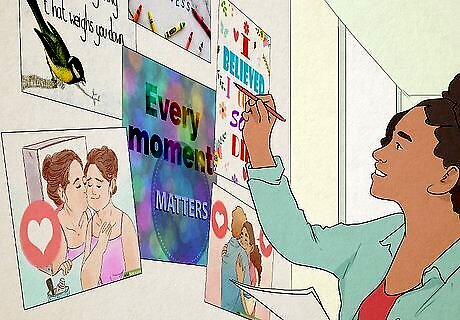
Create a space for things that inspire you. Whether you use a journal, a poster, or board, make a space to put up the things that inspire you. Try putting up quotes, pictures, and ideas. Once you've started filling in your board, you'll start to notice themes, identifying some of your passions. Use anything you can get your hands on for your board, from the internet and junk mail to old magazines.
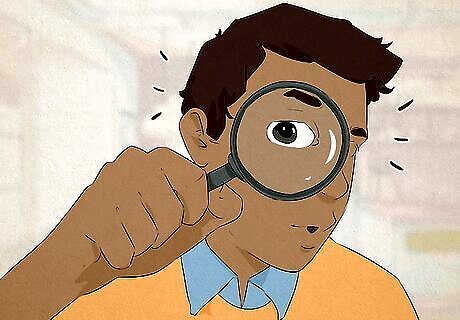
Make curiosity a part of your day. When you find you are curious about something, take the time to do some research. You may find you are passionate about a subject just by following through on an idea. Use the internet or the library to start following your curiosity.

Answer "yes." When life invites you to do something new, follow it along for awhile. For instance, when you get an opportunity to try something new at your job, agree to it. When your friend invites you to a new experience, go along with it. You never know what you'll come to love.

Explore your options. One way to explore is to try different things. Go to the library, and read books about topics that interest you. Try joining different community clubs or taking classes through your parks and recreation department. However, you don't even need to leave home to explore different passions. Try doodling one afternoon or playing around in your garden. Leave yourself open to possibility.
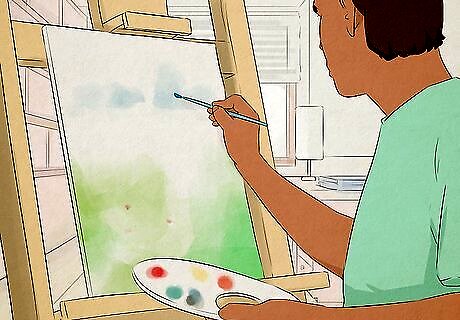
Let your passions give you expression. Your passions are where you can show who you are to the world. They also define who you are as a person because what you're passionate about drives your life. That's why it's so important to have them. If you're passionate about art, you can express yourself through it, either by creating it yourself or supporting people who do.
Discovering Your Skills

Think about the areas you've done well in. Where have you done well in the past? For instance, think about the classes you've gotten good grades in. Also, think about what you do naturally for friends and family, what they turn to you to do because you're good at it. Make notes about what you're good at doing. Your skills are a part of your identity, as many people will come to identify you with what you do.
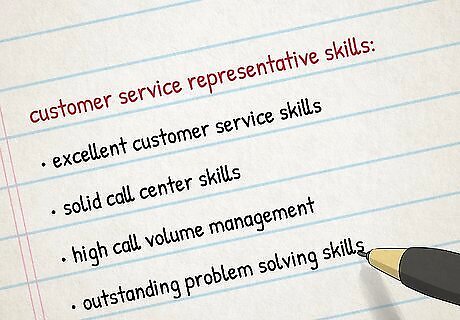
Consider what skills you've developed in jobs. Certain types of jobs teach you certain skills, whether you think you're learning them or not. For instance, when you work at the counter of a fast-food restaurant, you learn to deal with drama quickly and efficiently. Fast food jobs and retail jobs can also teach you people skills. Similarly, people will also associate what you do for a living with who you are. You spend a good portion of your life at your job, so it becomes a part of who you are.
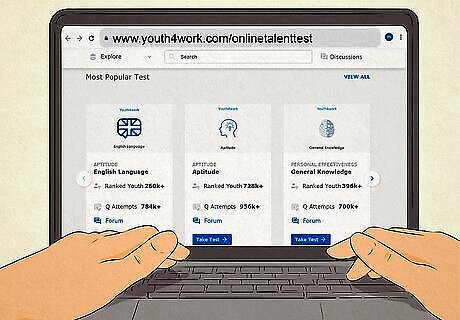
Try online skill tests. Many websites, especially job search websites and freelance websites, offer you the chance to take skills tests. These tests will help you judge how adept you are in particular areas, usually ones related to the job market.

Ask friends, family, and colleagues. Your peers are able to assess how good you are at certain skills, and as you put yourself out there in the world, you can ask for reviews of those skills. Your bosses, too, should also be able to tell you how well you do in certain areas. You can also ask your friends and family if they think you are particularly good at any skills.
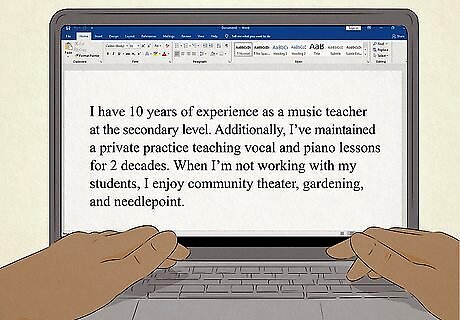
Define yourself by your skills. As you grow further into adulthood, your skills will define you in a professional sense. When you're looking for a job, you are essentially a list of skills and experience. That's how you're represented to the world. Though it may not be all of who you are, it is a part of what makes you who you are.
















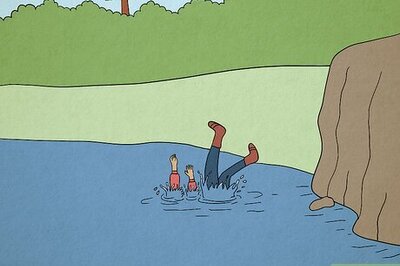


Comments
0 comment